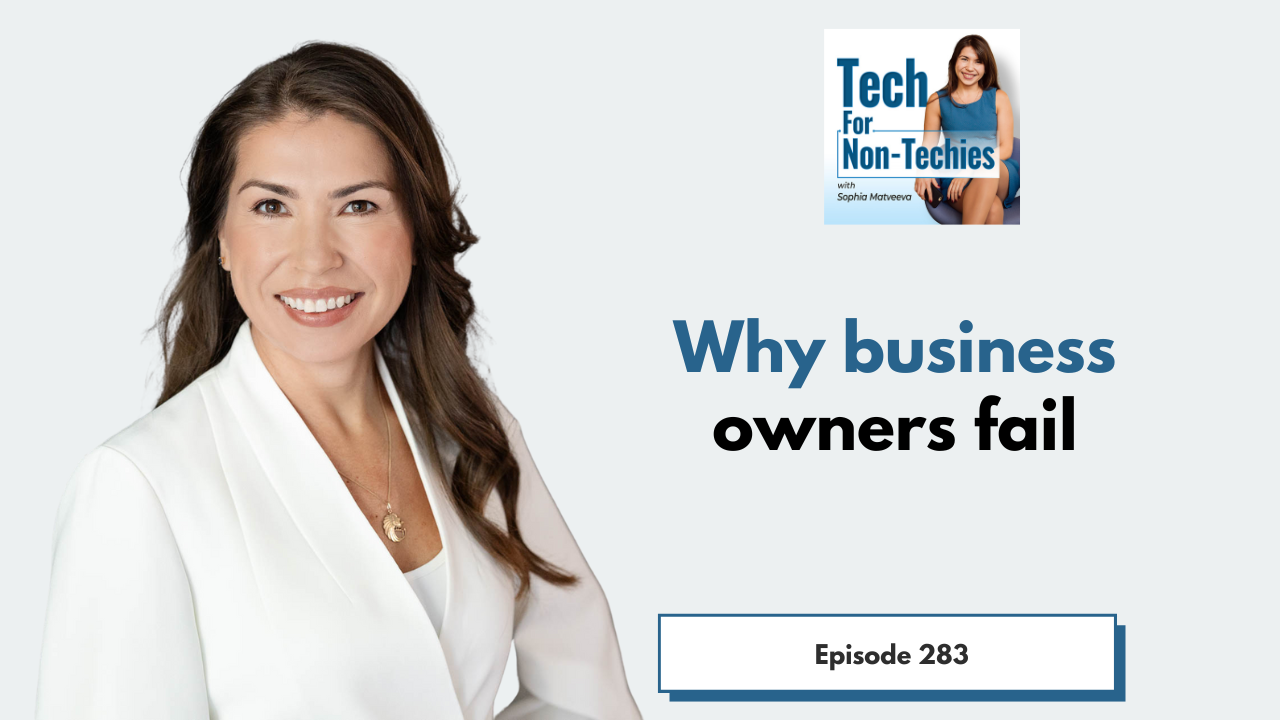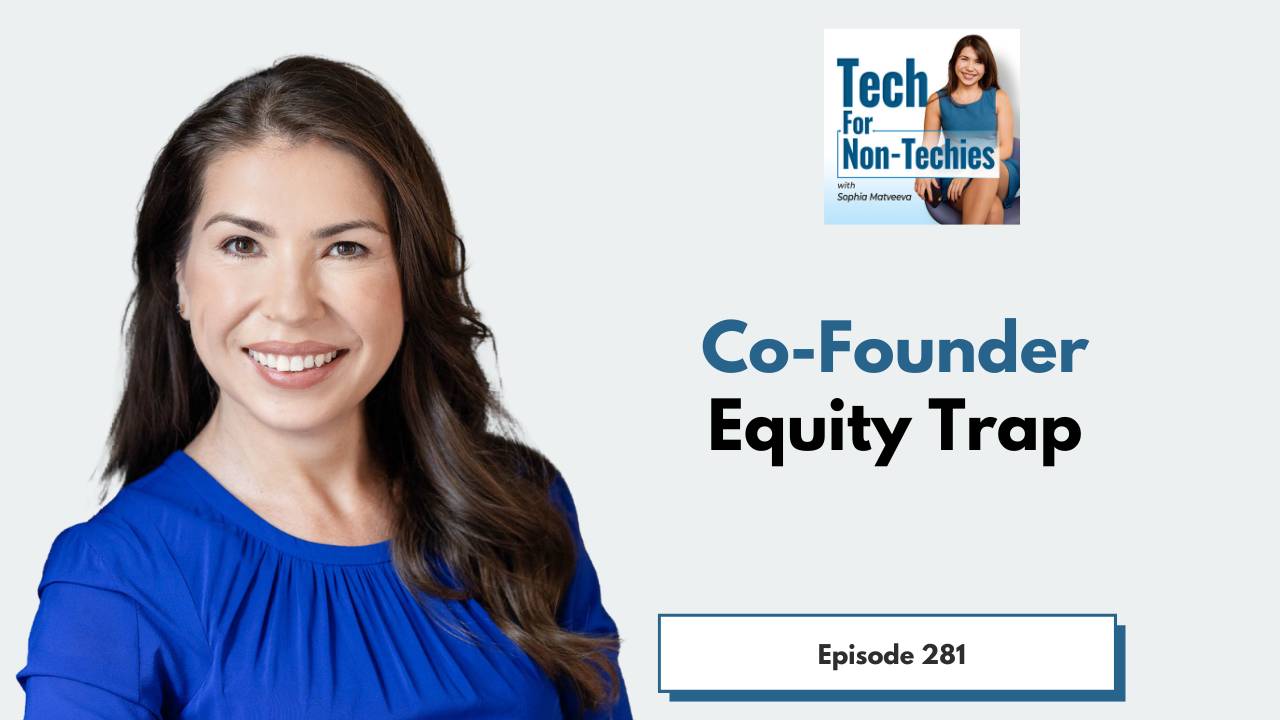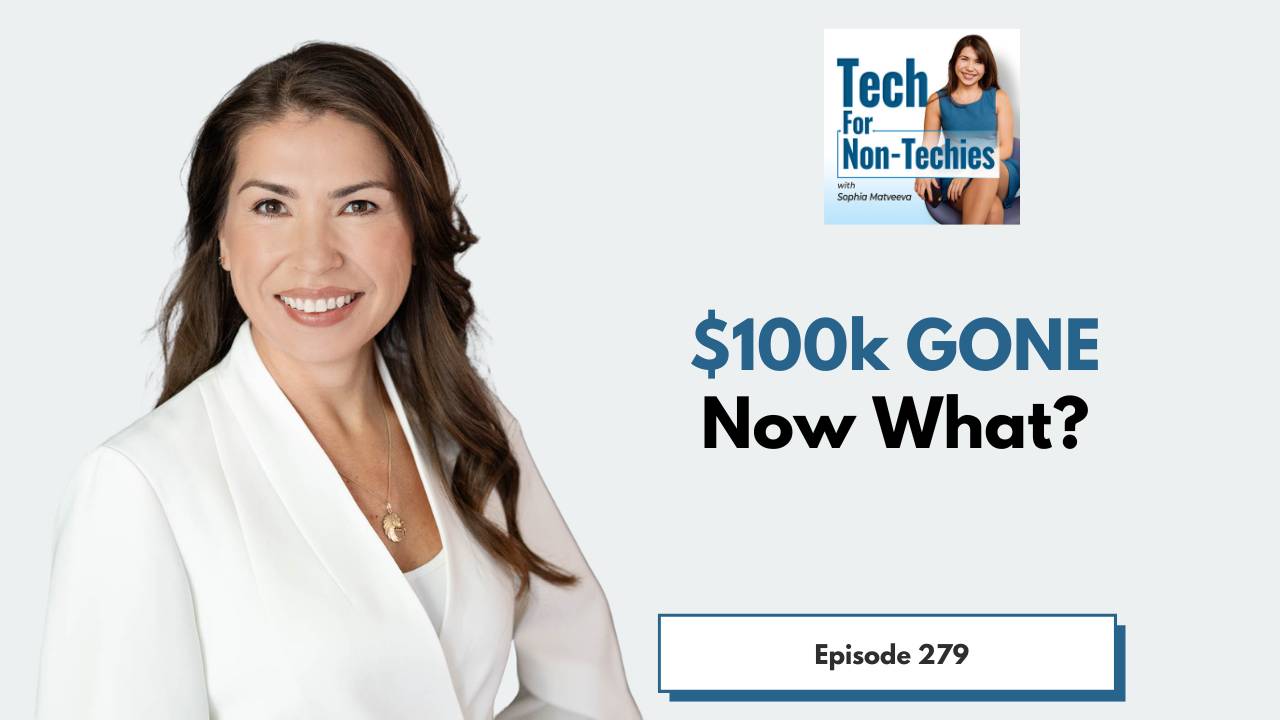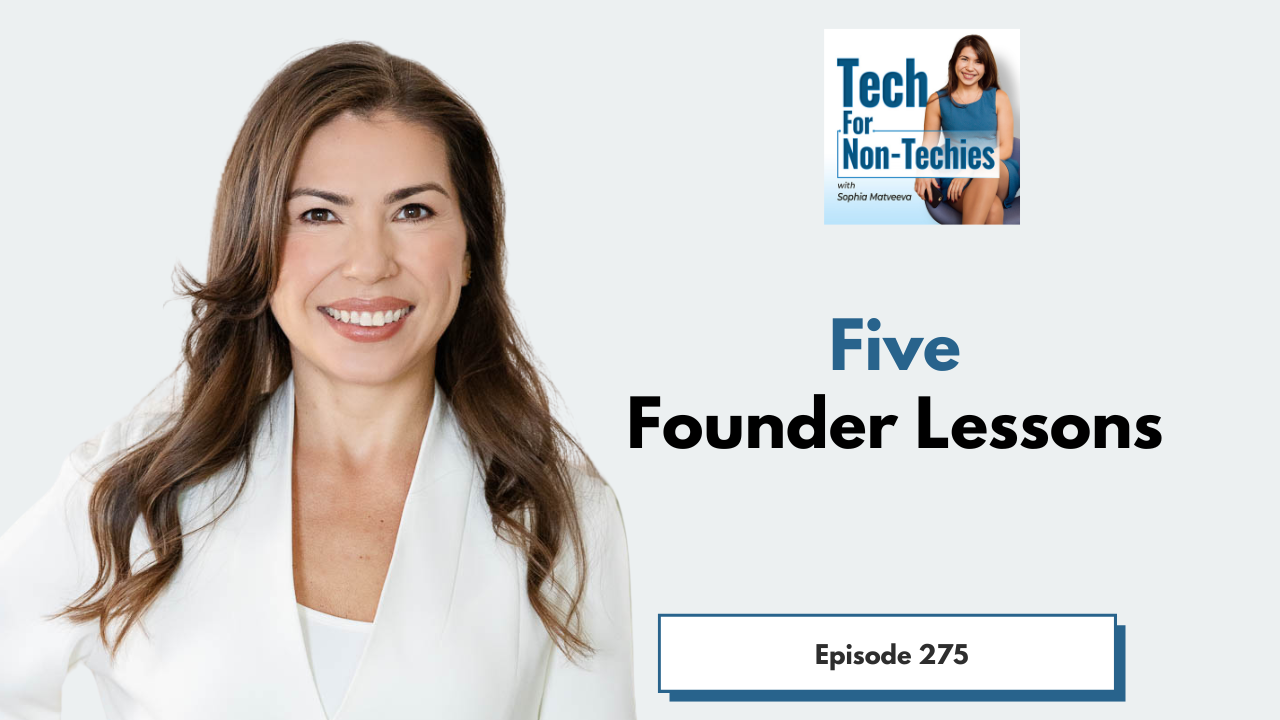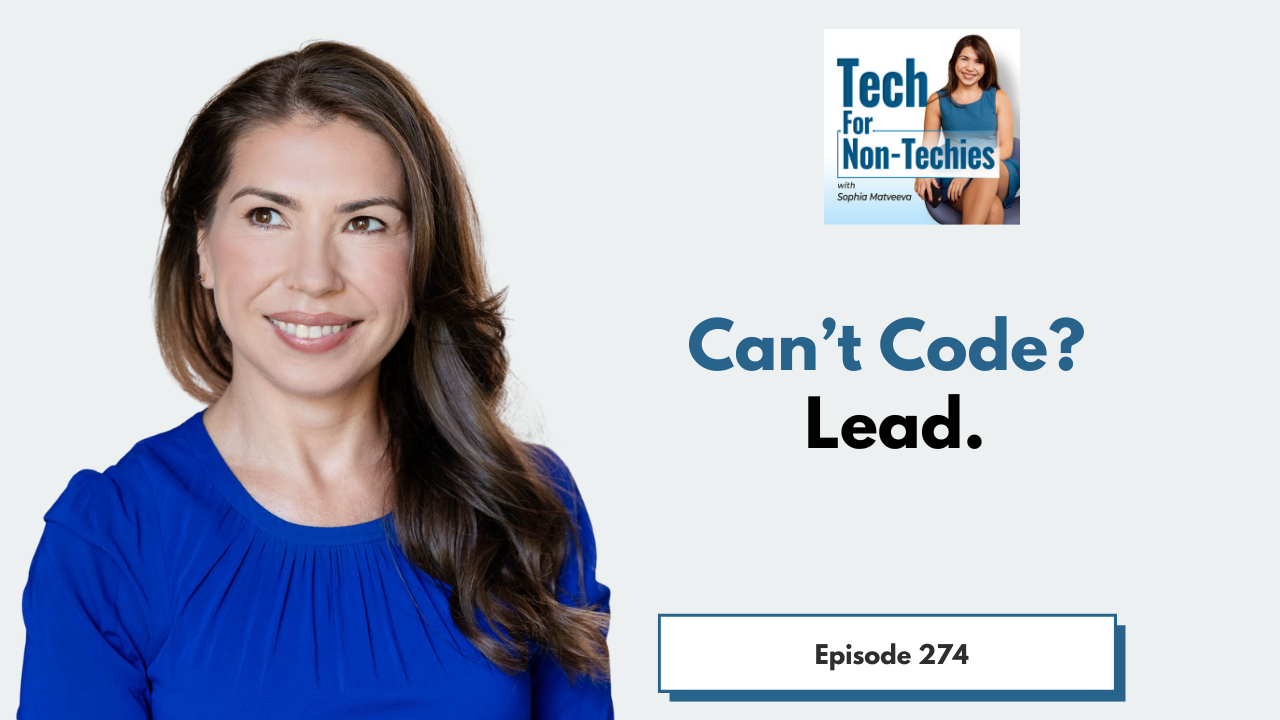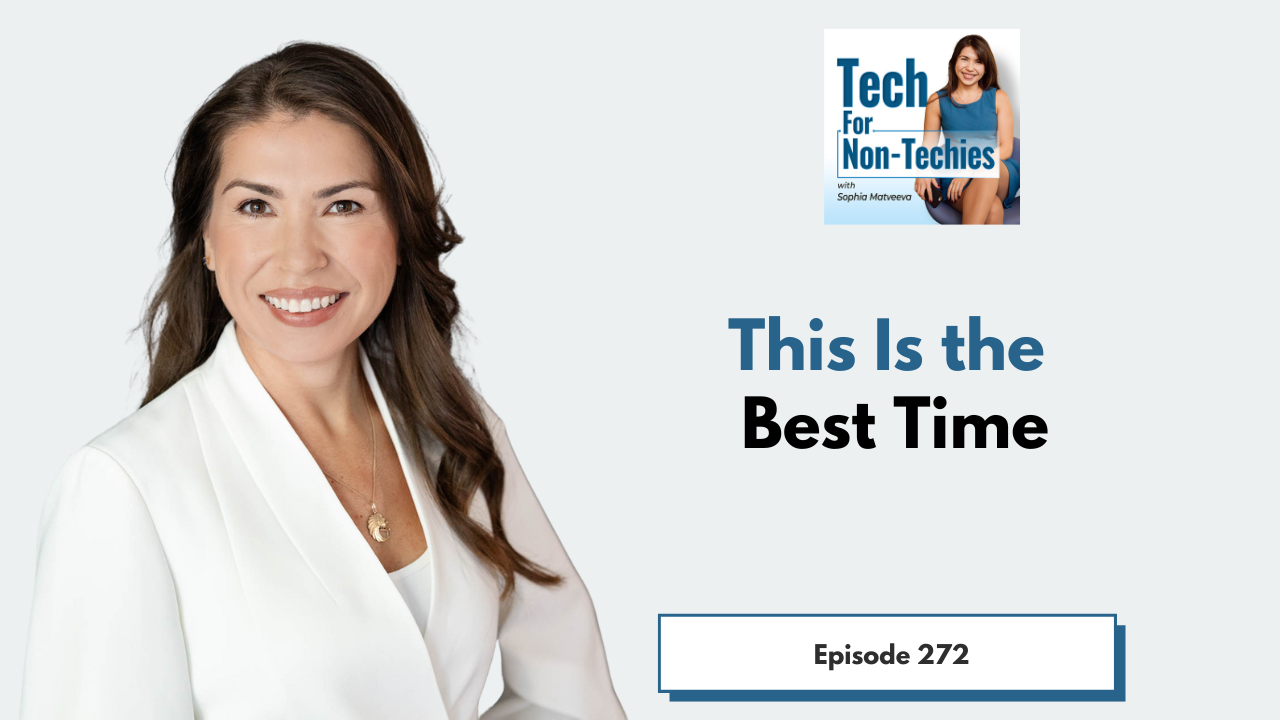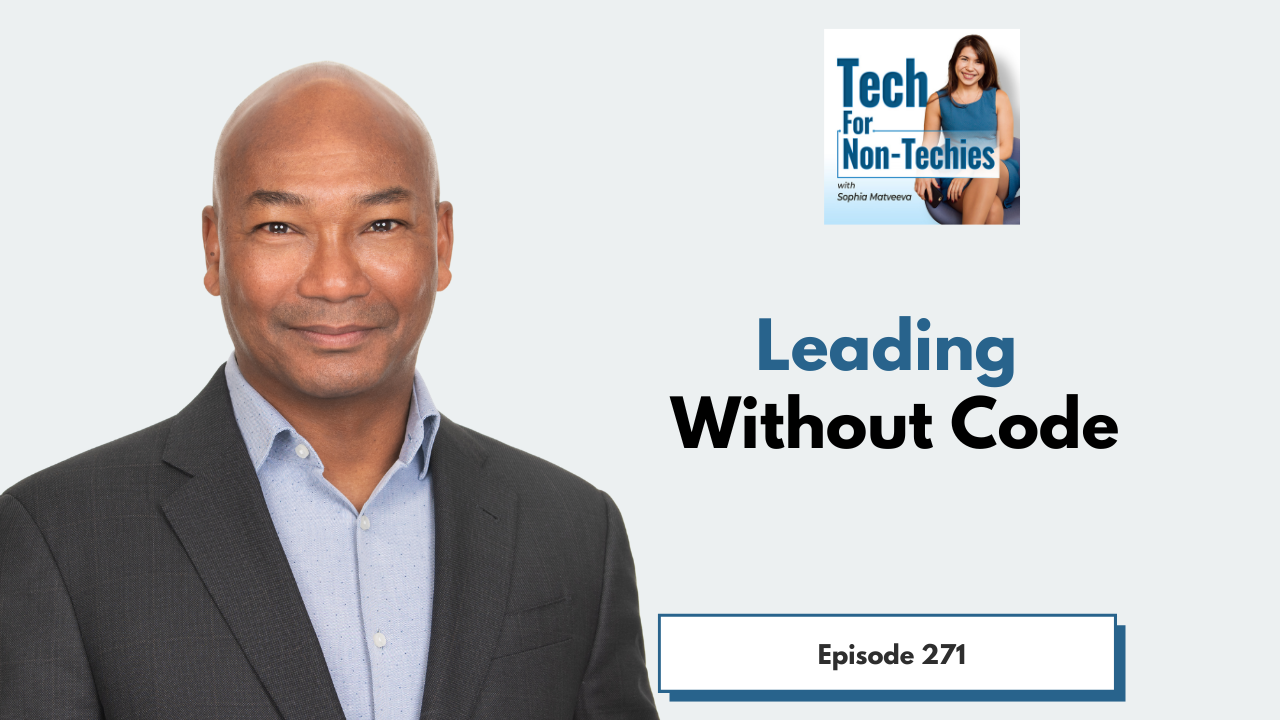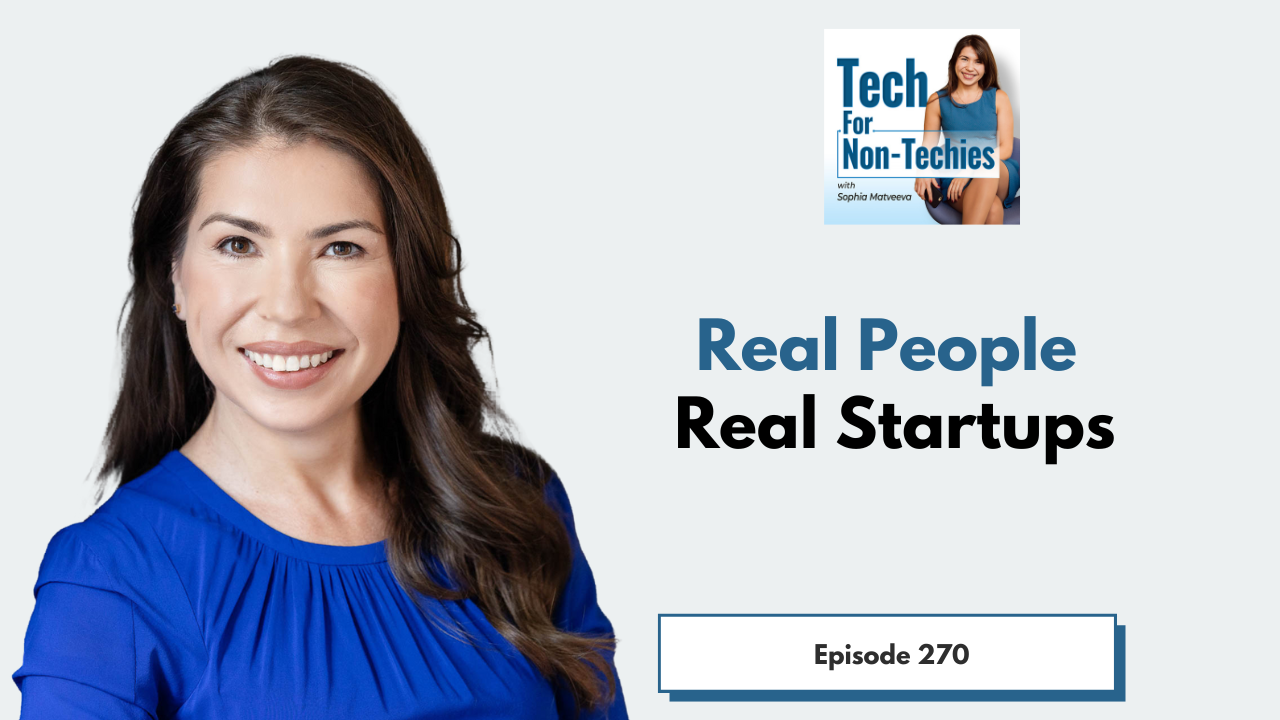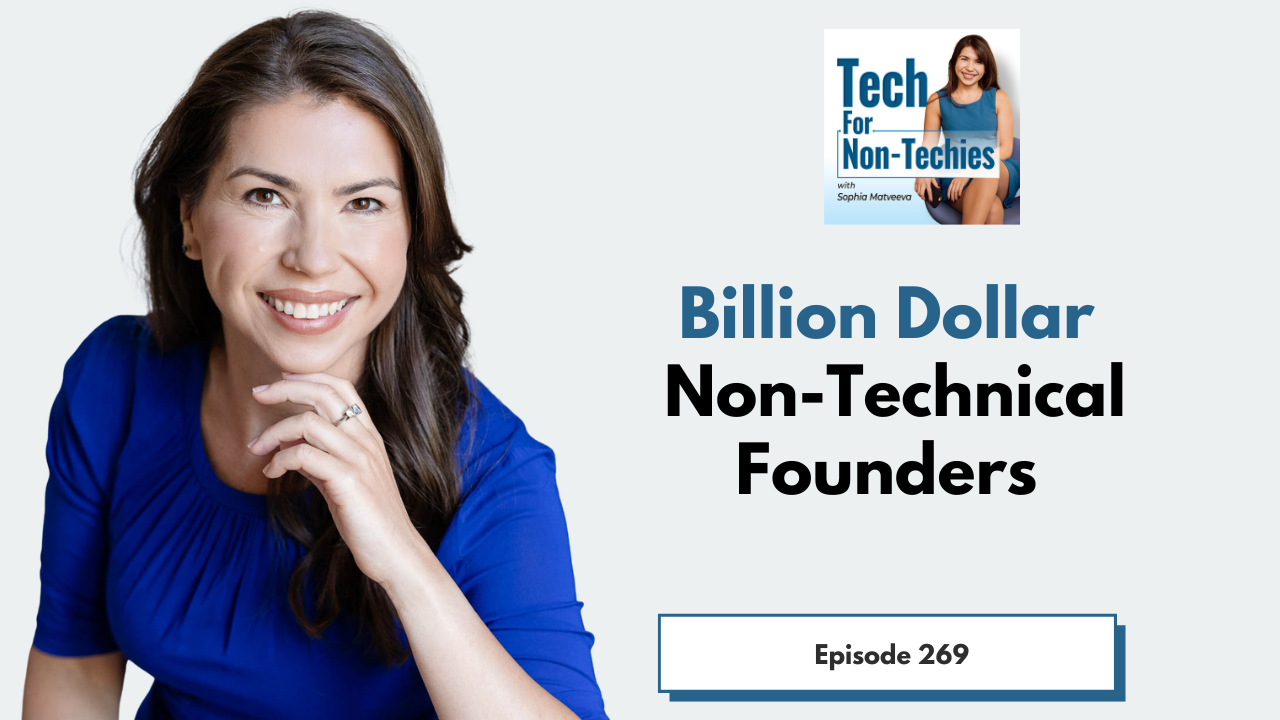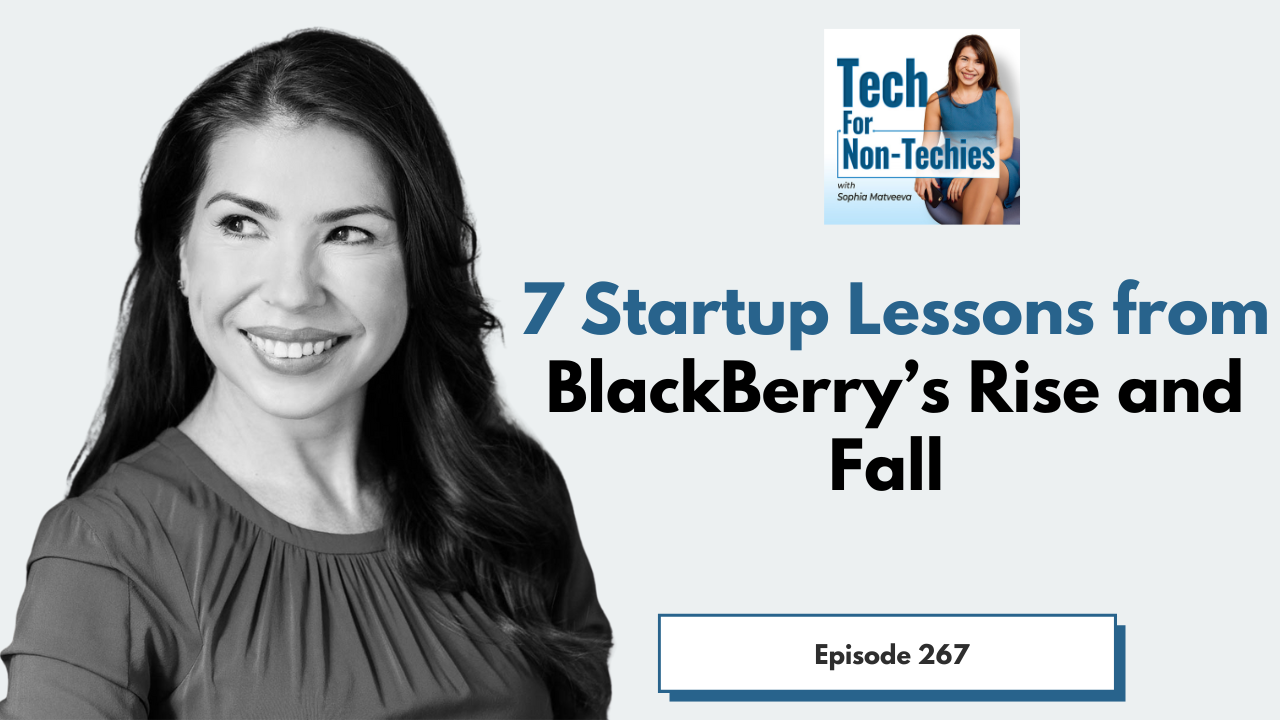You’ve built a successful business before. So why does tech feel harder than it should?
Here’s the uncomfortable truth. The instincts that made you successful offline can quietly sabotage you when you build tech or add AI.
In this episode of Tech for Non-Techies, Sophia breaks down the four tra...
People often think a technical partner will solve their product problems overnight.
Sadly, it rarely works that way.
Before you hand over equity to someone who can write code, you need to know what you’re actually giving up.
In this episode of Tech for Non-Techies, Sophia lays out the five ris...
Founders assume that if they just hire “good developers,” the product will magically take shape.
Sadly, that’s rarely what happens.
Too many non-technical founders burn through $50K … $80K … even $100K, only to end up with half-baked code and zero users. Not because they’re careless but because th...
What separates founders who make it from those who stall out?
After spending two days surrounded by billion-dollar CEOs and investors at JP Morgan’s Tech Investor Conference in London, Sophia Matveeva discovered that the conversations happening in those rooms reveal far more than market gossip.
...Many startups collapse not because the idea fails, but because the pressure gets unbearable.
Sadly, it’s not strategy or funding that takes them out. It’s the grind, the chaos, and the sheer mental weight of building something new.
In this episode, Sophia Matveeva shares three mindset shifts th...
For years, non-technical founders were second class citizens in tech.
Not anymore.
In this episode, Sophia Matveeva shares five reasons why today is the best time in history to start a tech venture without being a coder — and why, in some cases, non-technical founders actually have the advant...
Can you really lead a tech company if you’re not technical yourself?
David Windley has done exactly that.
He’s the former CHRO at Yahoo, held senior HR roles at Microsoft, Intuit, and Activision, scaled a startup from <$1M to $50M as CEO, and now leads HootRecruit — a recruiting tech company. ...
Most people think you need to be a Silicon Valley insider — or have millions in funding — to start a tech venture.
That’s just not true.
In this episode, Sophia Matveeva shares the journeys of four Tech for Non-Techies alumni who built products and startups without writing a single line of code...
Most founders think you need to be technical to build a billion-dollar company.
But some of the world’s biggest tech giants were started by people who never wrote a single line of code.
In this episode, Sophia Matveeva unpacks the journeys of four non-technical founders who rewrote the rules of...
Most founders think securing investors will solve all their problems.
But fundraising often creates a new set of challenges—misaligned expectations, endless reporting requests, and pressure that pulls focus from building the business.
The truth is, raising capital isn’t just about money.
It’s...
Most non-technical founders dream of building a game-changing tech product—without learning to code.
But bridging the gap between vision and execution? That takes more than just a good idea.
In this episode, Sophia Matveeva breaks down 7 essential lessons from the rise and fall of BlackBerry, a...
Most founders dream of creating a product so good it sells itself.
That’s the promise of product-led growth: customers discover, share, and adopt your product with little to no sales effort.
Sadly that's rarely the reality.
In the early stages, almost every founder has to do the hard, unglamor...

